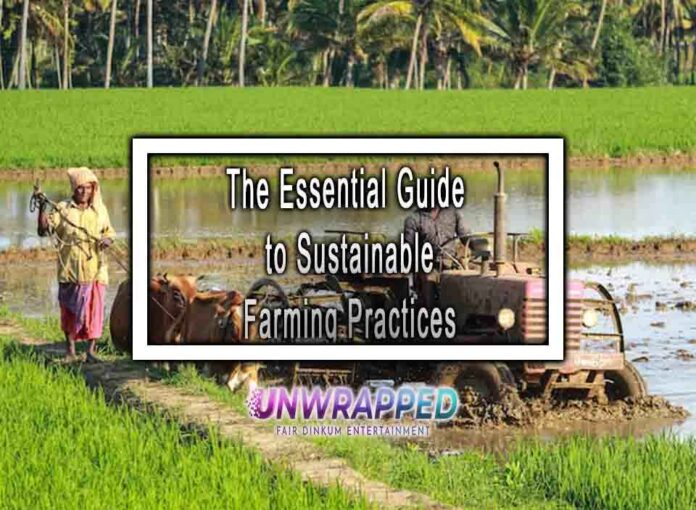Sustainable farming practices are crucial for preserving the environment, maintaining soil health, and ensuring long-term food production. Here’s an essential guide to sustainable farming practices that promote environmental responsibility and economic viability:
1. Crop Rotation:
- Crop rotation involves planting different crops in the same field over multiple seasons. It prevents soil depletion and the buildup of pests and diseases associated with monoculture.
2. Organic Farming:
- Organic farming avoids synthetic pesticides and chemical fertilizers. Instead, it relies on natural methods, such as composting, cover cropping, and beneficial insects, to enhance soil fertility and reduce environmental impact.

3. No-Till Farming:
- No-till farming minimizes soil disturbance by leaving crop residues on the field after harvest. This practice prevents erosion, improves soil structure, and sequesters carbon.
4. Cover Cropping:
- Cover crops like legumes and grasses are planted between cash crops to protect soil from erosion, improve fertility, and suppress weeds.
5. Integrated Pest Management (IPM):
- IPM combines various techniques to control pests, including biological controls, traps, and resistant crop varieties. It reduces the need for chemical pesticides.
6. Agroforestry:
- Agroforestry integrates trees, shrubs, or woody perennials with crops or livestock. It helps improve biodiversity, sequester carbon, and provide additional income through timber or fruit production.
7. Water Management:
- Sustainable farming practices for water management include drip irrigation, rainwater harvesting, and efficient use of water resources to minimize waste.
8. Soil Conservation:
- Practices like contour farming, terracing, and grassed waterways help prevent soil erosion and degradation.
9. Reduced Chemical Use:
- Minimize the use of chemical fertilizers and pesticides, and opt for natural alternatives or biological controls whenever possible.
10. Sustainable Livestock Farming: –
Implement practices like rotational grazing, raising free-range animals, and using organic feed to reduce the environmental impact of livestock farming.
11. Biodiversity Conservation: –
Promote biodiversity by leaving wild areas on the farm, planting hedgerows, and providing habitats for beneficial insects and pollinators.
12. Energy Efficiency: –
Implement energy-efficient technologies and practices, such as solar panels, to reduce energy consumption and environmental impact.
13. Composting: –
Composting organic waste and using it as natural fertilizer enriches the soil and reduces the need for synthetic fertilizers.
Sustainable farming practices benefit the environment, support biodiversity, conserve resources, and contribute to resilient and healthy agricultural systems. They not only promote food security but also reduce the negative impacts of agriculture on our planet. Farmers, researchers, and policymakers must collaborate to ensure the widespread adoption of sustainable farming practices.












